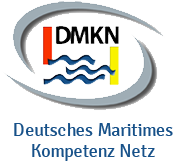Maritime Surveillance as a Precondition for Maritime Security
A European Approach
Intoduction
“ I recently came across these words on the bridge of a South Korean ship and they express perfectly what the seas and the oceans mean to us today. Once seen as something that divided us, and something to be overcome, the oceans now serve as a great Highway for the global exchange of goods and as an arterial link between the continents. As German president Joachim Gauck rightly put it at the recent Conference In the s foreign policy vocabulary free trade rhymes with peace, and the ” These shipping routes, as we more aptly call them today, have become the very foundation of free trade and prosperity. They are the lifeblood of globalisation and have exceptional benefits for a leading export nation like the Federal Republic of Germany. The safety and security of these marine highways is of huge importance for modern industrial societies. While the sea remains the major means of freight transport, tourism and marine extraction industries have also made it an increasingly important economic domain. Alongside this welcome growth there is a regrettable increase in piracy and smuggling, and in political tensions in, and between, the states bordering these routes. These not only endanger the safety and security of people at sea but also jeopardise the industries that depend on maritime trade and rely on the sea for energy and resources. The strong political, economic and ecological dependence of modern societies on the sea needs to be further explored and evaluated from a global viewpoint. A nation like Germany, with an economy that depends strongly on a safe and stable sea, must focus on security and take proactive measures to ensure that potential risks do not turn into concrete threats. It cannot do this on its own. It needs to work within the frameworks of the United Nations, the European Union and NATO. It is self-evident that the problems of a truly global world cannot be solved by any single state unilaterally. This ability and willingness to work together has become a crucial hallmark of international politics. The maritime domain, in particular, must always be seen from a transnational perspective. It deserves much greater public and political debate in order to raise public awareness of the maritime dimension of both German and European prosperity and German and European security. Raising awareness of this maritime dimension is a special concern of the German Maritime Institute, and I would like to thank former Vice Admiral Lutz Feldt for compiling the facts in this brochure for a maritime discussion of our situation and his suggestions on future management and peaceful co-existence within the maritime domain.
Hans-Joachim Stricker
Vice Admiral (ret.) and President of the German Maritime Institute
von: Lutz Feldt

